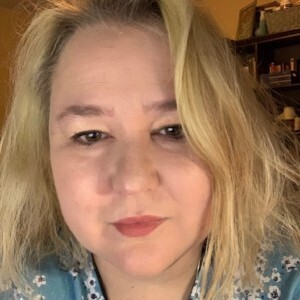
Additional Webinars
-
You must log in to register
- Free Access - Free!
Begin with these courses.
-
Contains 3 Component(s), Includes Credits Recorded On: 09/19/2019
This webinar is best for anyone of any level who fulfills or supervises the role of Community Resource Specialists and wants to learn more about collecting demographic data, tools for asking the questions, and how the information is used to improve your agency and your community.
This is an encore presentation of a conference favorite. In this webinar we will cover why we collect demographic data, tools for asking the questions, and how the information is used to improve your agency and your community. A collaboration of an Oregon-based 211 and ADRC, you will hear from a Community Resource Specialist, a call center manager, and a data analyst about all things ‘demo’, and learn some tools to improve the process for you and your staff. You’ll hear some examples of ways to ask demographics that may be more comfortable for you and your caller. And we will also look at demographic requirements and changes coming from the census and REAL+D, using an equity lens expanding vocabulary around gender identity, race, military/veteran status, and more!
After attending this webinar, participants will be able to:
Better understand why we ask demographics in I&R
Feel more confident asking demographic questions
Understand how demographic data is used after you collect it
Nickcolynn Nixon
Community Information Specialists at 211info
Nickcolynn Nixon is the longest-serving Community Information Specialist at 211info, which she joined in 2010. She assists with training, has served on several committees and was a founding member of the 211info Equity Team. Nickcolynn brings to the table experience in answering a variety of demographic questions from age and gender identity to housing status. For the past seven years, Nickcolynn has been president of the Inspirational Choir at her church.

Lacey Hanson
Program and Technical Specialist for the ADRC of Oregon
Aging and Disability Resource Connection of Oregon, Portland, Oregon
Lacey Hanson is the Program and Technical Specialist for the ADRC of Oregon and oversees I&R and Resource database entry statewide. She came to this position after supervising the Resource department at 211info of Oregon and SW Washington. Lacey is responsible for providing training, support and technical assistance to ADRC of Oregon staff. She is a member of the AIRS Taxonomy and Resource Database Committees and has participated in software development, upgrade and implementation. Lacey graduated from Portland State University in Administration of Justice and Spanish and subsequently obtained a Bachelor of Fine Arts degree from Oregon College of Art and Craft. Outside of the office, Lacey is a metalsmith and makes jewelry, knives and small sculpture.

Ciara Doyle
Director of Contact Center and Programs for 211info
Ciara Doyle is the Director of Contact Center and Programs for 211info in Portland, OR, where she supervises a statewide call center. She is responsible for program design, training, and organizational integration of core & specialized programs including lines for basic I&R services; foster parent support; environmental health concerns; and homeless services coordinated entry. Prior to joining 211info in 2012, Ciara worked in youth services with a variety of community-based programs, including a runaway youth crisis center & emergency shelter, youth employment training program, and reproductive health organizations. She has a Master’s in Social Work from Portland State University and a Bachelor’s in Social Work from North Carolina State University. Her interests include backpacking, travel, the internet, and Jack Russell Terrier rescue.
-
Contains 3 Component(s), Includes Credits Recorded On: 11/21/2019
This webinar is best for anyone of any level who fulfills or supervises a Community Resource Specialist Role in and I&R organization who want to learn more about conducting better assessments during interactions with callers or clients.
We will explore barriers to asking questions and how to overcome them, including breaking down the different types of questions and why we ask them, being confident when asking difficult questions, supporting challenging clients or complex situations. Learning when to talk and when to listen. Tips on asking high quality questions that will help lead clients to the best resources for their individual situations and how to think critically about what we need to know to give the best resources. This webinar is best for anyone of any level who fulfills or supervises a Community Resource Specialist Role in and I&R organization.
Objectives: After attending this workshop, participants will be able to:
Understand the different types and nature of the questions needed for effective Information and Referral
Be confident in asking difficult questions and be prepared for the range of client responses
Understanding the role of active listening in knowing what questions to ask next
Asking questions to support the Information and Referral Process
Understand the balance between the client telling their story and the importance of asking questions to dig deeper.
Julie Nurmi
Team Lead of the 211 Program - Canadian Mental Health Association – Edmonton
Canadian Mental Health Association, Edmonton, Alberta
Julie Nurmi is the Team Lead of the 211 Program - Canadian Mental Health Association – Edmonton. She has 9+ years of experience in answering 211, both front line and in a supervisory capacity. She is AIRS and CCW Certified and is the Lead Trainer for the 211 Program. She has a BA in Psychology (cum Laude) and has experience presenting on 211, further educating the public on the services offered.
-
Contains 3 Component(s), Includes Credits
This webinar is best for anyone with any level of experience and in any role at an I&R organization who wants to learn more about the set of skills and techniques required to be a successful motivational interviewer.
Change is hard. But, behavior change is important in many areas of life for people to achieve their goals, especially health-related goals. If people aren’t motivated or are ambivalent about behavior change, they are unlikely to be successful. Motivational Interviewing (MI) finds and amplifies the motivation that will help people achieve their goals, whatever they might be.
MI can be helpful to professionals of all kinds working to overcome client reluctance and ambivalence to change. MI makes change easier for both clients and professionals. It requires skills, techniques, and a way of being with clients that encourages change. Using this approach, counselors can readily engage clients, elicit their own powerful, internal motivation, offer information that clients will accept and act on, and resolve client ambivalence and reluctance to change.
Participants can expect to learn the following:
- What MI is and how it is used.
- The core skills necessary for the practice of MI.
- 4 ways to give information that clients will act on.
- A simple way to measure client motivation.
- 7 questions that will elicit clients’ internal motivation.
- The 4-step process of MI.
-
Contains 3 Component(s), Includes Credits
This webinar is best for anyone with any level of experience and in any role at an I&R organization who wants to learn more about the hidden rules of economic classes, and how they impact the stability of an individuals’ life.
Have you ever worked with a client or customer who owns the latest iPhone, video game system, and/ or name-brand clothing, but doesn’t “have” money for rent or food? Have you given a client a small list of tasks to do before the next meeting, and they continuously have been unsuccessful in doing them?
If you didn’t grow up in poverty, or haven’t lived in it, you may be unaware of the “hidden rules” that govern many aspects of life for those in it. People in poverty are often in survival mode, and support systems taken for granted in middle class and wealth are largely nonexistent. This webinar is a brief, 1 hour overview of Bridges Out of Poverty concepts. Using the lenses of the individual, the community, and the institution, we will explore the hidden rules of economic classes, and how they impact the stability of an individuals’ life.
Participants can expect to:
- Analyze poverty through the prism of the hidden rules of class, resources, and language
- Explore the causes of poverty and barriers keeping individuals in poverty
- Develop accurate mental models of poverty, middle class, and wealth
- Gain the knowledge to be an agent of change
-
Contains 2 Component(s), Includes Credits
Self care, in essence, is the mindful taking of time to pay attention to you, not in a narcissistic way, but in a way that ensures that you are being cared for by you. Perhaps the most overarching aspect of self-care, encompassing both professional and personal levels, revolves around how well we can balance our work and personal lives. When we are in a state of "work–life balance", we don't feel torn between time allocated for work and other aspects of life, include personal interests, family and social or leisure activities. Join a panel of three women, Jennie, Ari, and Chiara, who have been part of I&R for years as they share what they have experienced (and are still experiencing) as they journey toward work-life balance.
Do you feel "stressed-out" on a daily basis?
Do you worry that you aren't doing enough for your family when you are at work, or enough for your employer when you are at home?
Have you set your own self-care regimen aside to attend to the needs of your family and employer?
Do you even really know what self-care is?
Self care, in essence, is the mindful taking of time to pay attention to you, not in a narcissistic way, but in a way that ensures that you are being cared for by you.
Perhaps the most overarching aspect of self-care, encompassing both professional and personal levels, revolves around how well we can balance our work and personal lives. When we are in a state of "work–life balance", we don't feel torn between time allocated for work and other aspects of life, include personal interests, family and social or leisure activities.Join a panel of three women, Jennie, Ari, and Chiara, who have been part of I&R for years as they share what they have experienced (and are still experiencing) as they journey toward work-life balance.
After this webinar attendees will be able to:
Recognize the symptoms of burnout in themselves
Express what work-life balance would best look like in their own lives
From listening to others experiences, be able to identify what self care approaches might work in their own lives to achieve the desired work-life balanceJennie Pollak is a wife and mother of 6, special needs mom, foster mom, Christian, troop leader, MI-AIRS Secretary, Accreditation Commission Chair and Deputy Director of Michigan 211.
Ari Breeding is a wife, mother of 2 dogs, grad student, co-owner of a tree service company, active yogi and the Training Manager at Tampa Bay Cares.
Chiara Cameron-Wood is a wife and mother of 4, stepmother to 3, sister, daughter, granddaughter, niece, musician, bakery manager and the Director of Training and Learning for AIRS.




